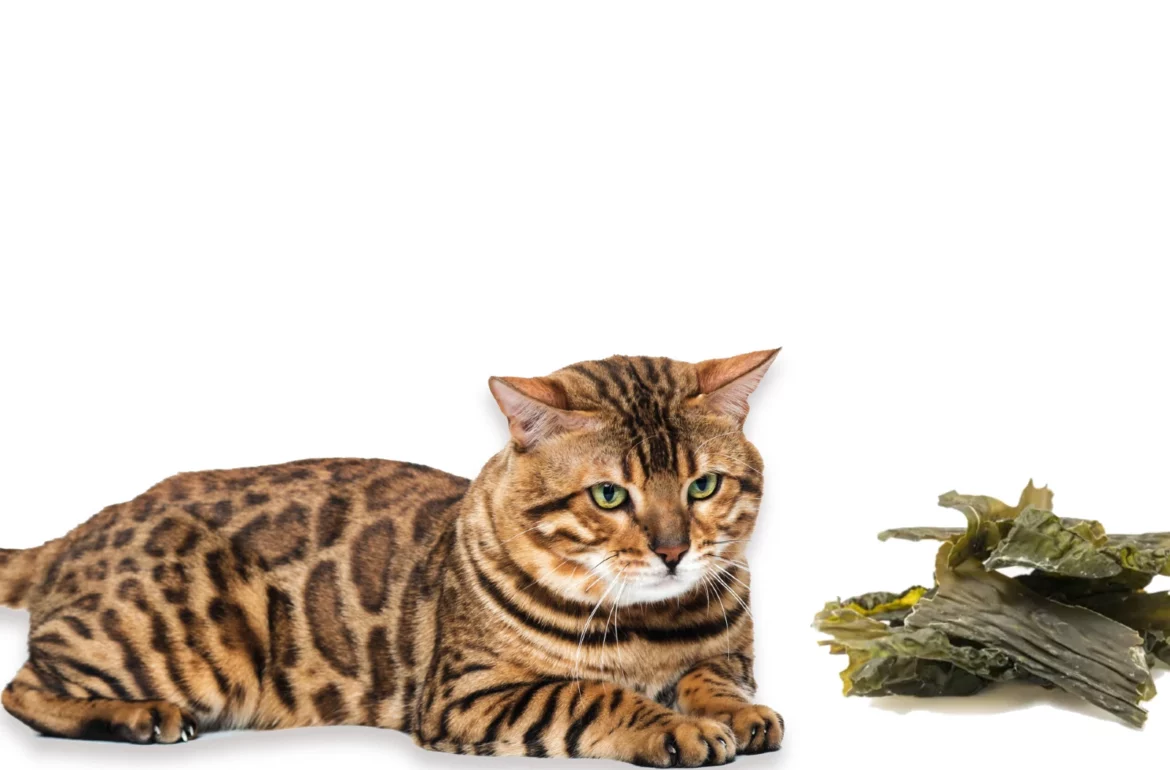Exploring the Benefits of Seaweed and Marine Plants for Cat Health

The sea holds a bounty of treasures that can benefit the health of your cats. You may wonder, “can cats eat seaweed?” The answer is yes! When consumed in appropriate amounts, seaweeds and marine plants are safe and healthy for cats. This nutrient dense superfood of the sea provides a source of proteins, fiber, vitamins, trace minerals and essential fatty acids.
This blog post explores the nutritional benefits of seaweeds and marine plants for cats, as well as the best sources of these nutrients.
High in Omega-3 Fatty Acids
Next to fatty fish like salmon, sardines and tuna, sea plants and seaweeds are rich in EPA and DHA, two essential omega 3 fatty acids that are important for cat health. These fatty acids are important for maintaining a healthy heart and circulation, as well as promoting good skin and fur. Adding seaweed to your cat’s food can also help to reduce inflammation and improve joint health.
Great Source of Iodine
Seaweeds and marine plants are abundant in vitamins and minerals essential for feline health. For instance, seaweed is a good source of iodine, vital for regulating metabolism and supporting thyroid function in cats.
Elkhorn seamoss, a type of red seaweed and kelp, a type of brown seaweed are just a few examples of edible seaweeds for cats that are rich in iodine. Iodine helps with many functions including proper function of the thyroid gland. A diet that is low or deficient can lead to hyperthyroidism, an endocrine disease that is common in older cats.
Antioxidant Rich
Marine plants and seaweeds are also a valuable source of antioxidants. Antioxidants help to support the immune system and protect cells from damage caused by free radicals produced in the body due to exposure to the environment, air pollutants and chemicals. Astaxanthin, a keto-carotenoid that possesses potent antioxidant properties, is found in marine algae such as the Hawaiian red algae and Haematococcus pluvialis, a microalgae.
Digestible Source of Fiber & Protein
Chlorella, a type of single-celled algae that grows in freshwater is not only a good source of chlorophyll, lycopene, beta-carotene and lutein, it provides your cat with nutritional fiber with helps in their digestive health. A diet with sufficient fiber can also aid in reducing inflammation and promotes healthy bowel movements.
Finally, seaweeds and marine plants are also a complete protein source with all nine essential amino acids required by cats, which makes it essential for building and repairing muscle tissues in felines. Spirulina and chlorella, two types of blue-green algae are particularly rich in amino acids, which are the building blocks of protein.

In conclusion, seaweeds and marine plants are a great way to support feline health and well-being. Not only are they safe for cats to eat, but they are also a nutritional powerhouse that is rich in omega-3 fatty acids, vitamins and minerals, antioxidants, fibre, and protein.
If you are looking to add seaweeds and marine plants to your cat’s diet, consider adding kelp, nori, kombu, elkhorn seamoss, spirulina, or chlorella to their diet. Alternatively, at The Grateful Pet, our fresh meals for cats are boosted with superfoods, one of them being prebiotic elkhorn seamoss. It is fermented with active prebiotics which carry numerous benefits known to improve cardiovascular, liver and metabolic function by moderating healthy gut bacteria. You can choose from our variety of protein all of which are AAFCO complete and balanced.
Sources
- “Antioxidant Effects of Seaweeds and Their Active Compounds on Animal Health and Production – A Review” Taylor & Francis Online, 8 April 2022 https://www.tandfonline.com/doi/full/10.1080/01652176.2022.2061744
- “Seaweeds for Animal Health” Innovative Veterinary Care, 20 September 2017, https://ivcjournal.com/seaweeds-animal-health/
- “Red Algae.” International Journal of Current Advanced Research, 28 April 2022, https://journalijcar.org/sites/default/files/issue-files/13134-A-2022.pdf



